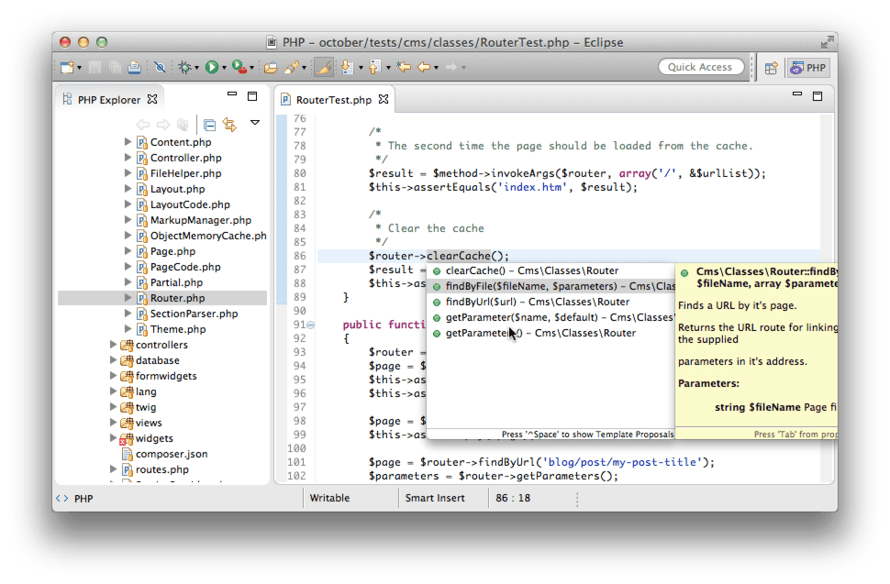2020. 3. 6. 03:04ㆍ카테고리 없음
Eclipse is one of the powerful IDE tool available for Java and various other programming languages such as C, C and web-based scripting and programming languages. Eclipse became popular after 2014, and it was one of the widely used Android app development IDE before Android Studio became popular.Most of the software-industries are focused on the performance of their software instead of the popularity of the users with low-performance PCs. 64-bit architecture Eclipse is not supported by most of the machines and downloading Eclipse 32-bit architecture isn’t that easy as only 64-bit is available to download on the official website of the Eclipse. In this article, we will learn how to download Eclipse 32-bit for Windows. Once you have downloaded Eclipse, extract the zip file and launch the application. It will prompt to set the Work path, and after that, you will be able to use it without any issues.Make sure you have installed and set the JavaHome environment variable; otherwise, you will get the following error:A Java Runtime Environment (JRE) or Java Development Kit (JDK) must be available in order to run Eclipse. No Java virtual machine was found after searching binjavaw.exe javaw.exe your current path.To set the JavaHome environment variable:.


Right-click on My Computer. Go to Properties. In properties, click on Advanced system settings. In the advanced system, settings click on Advanced tab. In the advanced tab click on Environment variables. On the Environment variables under User, variables click on New button. In the prompted window, enter Variable name as JavaHome and value as your JDK path.
For example C:Program FilesJavajdkX.X.XXXX.
I'm trying to run eclipse for java in Windows 7 64bit edition, and when I run the eclipse.exe file, absolutely nothing happens. A ephimeral javaw.exe process is created in the task manager, but as I said, it's just there for a split second, and it disappears, after that NOTHING. I tried compiling a small program with the javac.exe file, and that works all right, but for some reason I cannot run Eclipse.Any suggestions on what I could be doing wrong. I'm a complete Java noob, it's the first time I try to do this.These are the files I have, and I downloaded the Windows 64bit version of eclipse.Thanks!EDITOK, solved. The book I'm using is misleading. It said I should use the javaw.exe file from jdk1.6.021, and doing that didn't work.
Now I tried with one in jre6, and it ran.Thanks everyone and sorry for the hassle! First, check you eclipse.ini (even a space at the end of a line can prevent eclipse from starting)Second I am surprised to see java. file in your Eclipse distribution.You shouldn't' have those, and instead refer to the right java (64 bits) in your eclipse.ini.In both case, see this.Check also the /.metadata/.log (error log file).I just added it there because it was asking for it, supposedly the best way it to put it in the PATH.If eclipse is 'asking for it', that means your current java installation is not part of the PATH. It need to be reference from the eclipse.ini file.See alsoIn any event, don't copy any java files around.Used in your eclipse.ini a path like: -vmC:/Prog/Java/jdk1.6.021/jre/bin/server/jvm.dll. I experienced relatively little trouble moving to 64-bit java:. Download Eclipse Helios 64-bit version. Download Java 6 SDK 64-bit version.

Eclipse 32 Bit Installer
Install both. RunThe issues may arise if you have both 32-bit and 64-bit JDKs in the same machine. If you want to explicitly run Eclipse with one JVM, then you need to specify its full path in eclipse.ini.e.g.-vmC:/Program Files/Java/jdk1.6.020/bin/javaw.exeWhere the path points to the 64-bit version.The other issue I encountered after moving is that the Subclipse plugin by default uses a 32-bit DLL backend and therefore doesn't work. However Subclipse also works with a pure-Java back-end for Eclipse called JavaHL which solved that issue.